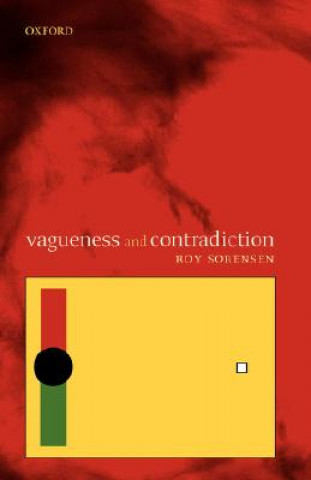
Doručení
Nákupní rádce





Nehodí se? Vůbec nevadí! U nás můžete do 30 dní vrátit
 Dárkový poukaz
V libovolné hodnotě
Dárkový poukaz
V libovolné hodnotě
S dárkovým poukazem nešlápnete vedle. Obdarovaný si za dárkový poukaz může vybrat cokoliv z naší nabídky.
Vagueness and Contradiction
 Angličtina
Angličtina
 195 b
195 b
30 dní na vrácení zboží
Mohlo by vás také zajímat


Did Buddha become a fat man in one second? Is there a tallest short giraffe? Epistemicists answer 'Yes!' They believe that any predicate that divides things divides them sharply. They solve the ancient sorites paradox by picturing vagueness as a kind of ignorance. The alternative solutions are radical. They either reject classical theorems or inference rules or reject our common sense view of what can exist. Epistemicists spare this central portion of our web of belief by challenging peripheral intuitions about the nature of language. So why is this continuation of the status quo so incredible? Why do epistemicists themselves have trouble believing their theory? In Vagueness and Contradiction Roy Sorensen traces our incredulity to linguistic norms that build upon our psychological tendencies to round off insignificant differences. These simplifying principles lead to massive inconsistency, rather like the rounding off errors of calculators with limited memory. English entitles speakers to believe each 'tolerance conditional' such as those of the form 'If n is small, then n + 1 is small.' The conjunction of these a priori beliefs entails absurd conditionals such as 'If 1 is small, then a billion is small.' Since the negation of this absurdity is an a priori truth, our a priori beliefs about small numbers are jointly inconsistent. One of the tolerance conditionals, at the threshold of smallness, must be an analytic falsehood that we are compelled to regard as a tautology. Since there are infinitely many analytic sorites arguments, Sorensen concludes that we are obliged to believe infinitely many contradictions. These contradictions are not specifically detectable. They are ineliminable, like the heat from a light bulb. Although the light bulb is not designed to produce heat, the heat is inevitably produced as a side-effect of illumination. Vagueness can be avoided by representational systems that make no concession to limits of perception, or memory, or testimony. But quick and rugged representational systems, such as natural languages, will trade 'rationality' for speed and flexibility. Roy Sorensen defends epistemicism in his own distinctive style, inventive and amusing. But he has some serious things to say about language and logic, about the way the world is and about our understanding of it.
Informace o knize
 Angličtina
Angličtina




 Jak nakupovat
Jak nakupovat





















